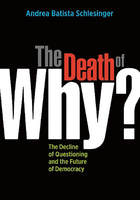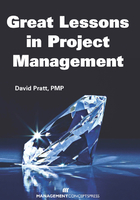John Hope Bryant has made a wonderful, original, and visionary contribution for all of those who want to see economic inequality shrink in their lifetime. Business executives take note and follow the steps in this book! Every high school senior or college freshman should read this book. And every teacher who's teaching economics or religion also must read this book. John Bryant has condensed more information and experience in a couple of hundred pages than most any other book I've recently read.
What he says is not new, but it's presented in a fashion that is not primarily academic or intellectual. Nor is it simply a collection of business models and statistics. It really is quite prophetic.
This book is in the tradition of John Maynard Keynes's The Economic Consequences of the Peace, written in 1919 and ignored until the Marshall Plan was proposed in 1947. It is in the tradition of University of Michigan professor C. K. Prahalad, who wrote about The Fortune at the Bottom of the Pyramid. It is in the tradition of Muhammad Yunus, the "poor people's banker," and the Grameen Bank experience in Bangladesh. And John reminds us most of all that America is a summary of all of these economic thinkers as well as the vision of Isaiah springing with hope eternal from the ashes of a destroyed Jerusalem.
John Bryant used to worry me to death. And then suddenly I realized it was not worry; it was a warning. He was calling me to life. And he was calling me to realize that one cannot afford to slow down or be tired, even after eighty years of struggle. I realized that there is too much to do, that there is an urgency in today's economy and on today's planet that can only be answered with the energy and vitality inherent in youth and the experience and wisdom inherent in old age, combining to create a courageous new world order.
As mayor of Atlanta I learned that, as far as cities are concerned, national economies are mostly irrelevant. To survive, cities must join together in a global economy. And technology, which transcends borders, is far more powerful than any laws created by councils, legislators, or Congress.
John Bryant is a man born into the world of the local streets and alleys of Watts and Atlanta who now walks into parlors with presidents and princes and probably talks to a greater variety of important people in a week than most CEOs do in a year. That's because he talks to important people not only in the suites but also in the streets. And his ideas have come not through our universities or the inherited ideas of the European free market but from the strivings and struggles of small business and church neighborhoods like the one he grew up in.
I'm fascinated by the impact that John's experience as a Soul Train teenage dancer had on his life. If there's one thing that inspires self-esteem, confidence, and rhythm, it's dancing. It's not only John's dancing on Soul Train but also a young David dancing around the Ark of the Covenant and Nelson Mandela toyi-toying his way to freedom in South Africa. Life is a dance. And when we are filled with rhythm and vitality we constantly exude hope and optimism, making all things possible. There is no such thing as failure. One must follow Frank Sinatra's example and pick ourselves up and get back in the race, because that's life.
That makes John an artist as well as a businessman. But he is a businessman who is not interested in generating personal wealth but in helping to awaken the vitality and the idealism of the world's poor, to integrate them and their entrepreneurial energy, along with their consumer power. John's hope is to revitalize the global economy of the twenty-first century.
There is more wealth in today's world than has ever existed in history. There is a greater capacity for, creation of, and access to technology than ever before-technology ranging from satellites orbiting the earth to geologic soundings in the depths of the sea, technology that proves that almost everything and anything is possible. At the same time, there is also a greater understanding of the world's needs than ever before. We can predict droughts and we can analyze the failure of the earth's surface to regenerate its topsoil, as Howard Buffett reminds us in his book Forty Chances.
The energy and vitality that John Bryant brings to life, the whirling dervish of energy and aggressiveness, is not that of a folk seeker but of a watchman who sees the distant dangers of chaos resulting from massive numbers of unemployed youth in our central cities and in the alleys of Delhi, and in the rural storms emerging among China's poor. He is a watchman who sees the terrorism that plagues the Middle East and the restlessness among the masses in Brazil, South Africa, Nigeria, and Russia.
He has experienced firsthand the statistics that Jim Clifton records in his prophetic book The Coming Jobs War, which says that a planet of seven billion people cannot be sustained with only 1.2 billion jobs, that the very survival of humanity, rich and poor alike, depends on finding ways to mobilize, innovate, generate another one billion or two billion jobs. Jobs cannot be created by wars or by governments. Jobs must somehow evolve through the interaction of vision, need, energy, and even a little greed. But greed alone only produces the wealth of the rich young ruler who, after gathering his riches into barns, was confronted by the reality that "this night thy soul is required of thee."
John Bryant is pointing to a choice between judgment and jubilee. And I think Dr. King would be proud of his efforts to inspire us to feed the hungry, clothe the naked, heal the sick, set at liberty those who are oppressed, and, in the process, create and enjoy the abundant life that the Bible promises for all of God's children.
Andrew Young
former UN ambassador,
civil rights organizer,
and mayor of Atlanta














